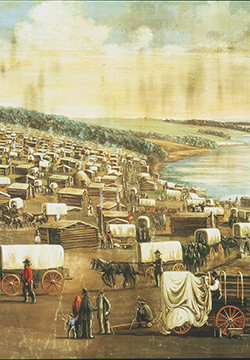October 24, 1837
Wright v. Whitney and Johnson: Recognizance of special bail was entered into by Newel K. Whitney, John Johnson, Heman Hyde, and Jacob Bump for $3,000 each, stating that if Whitney and Johnson were condemned in the suit, the four above mentioned would pay costs.
